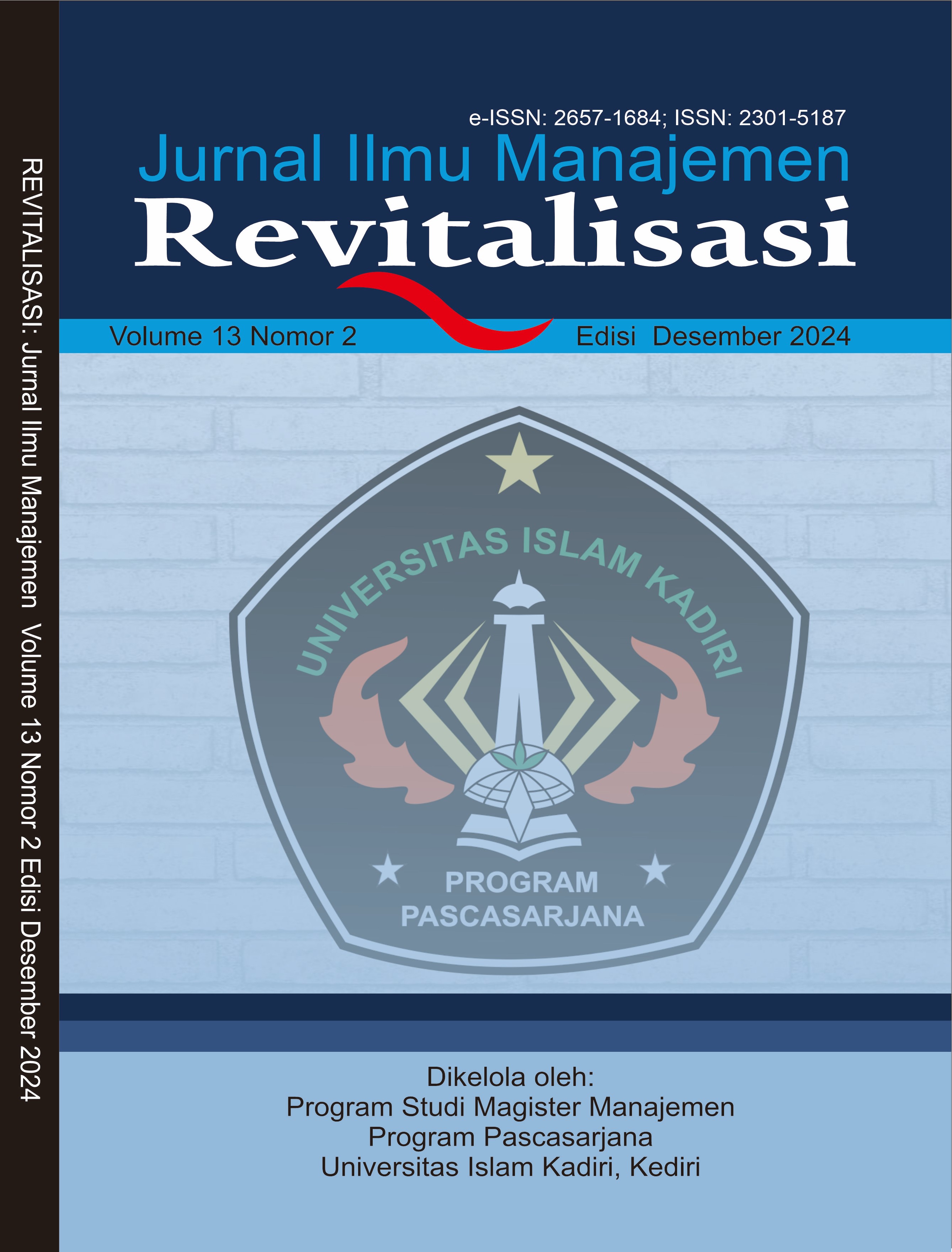Implementasi Enterprise Risk Management pada Proyek-Proyek Strategis Daerah oleh Inspektorat Daerah Kota Blitar
Abstract
The government's internal oversight apparatus has a strategic role in supporting and strengthening the effectiveness of the internal control system in order to ensure effective, efficient, and accountable governance. Blitar District Inspectorate, in its role as Quality Assurance, is able to bring the Government of Blitar to the Warrant Opinion Without Exclusion (WTP) for 13 consecutive times from BPK RI on inspection of the Financial Report of the Regional Government (LKPD). However, in the implementation of the duties and maintenance of the government, there are still findings and recommendations of the results of inspection from BPC RI as well as BPKP and other APIPs that are included in the Examination Results Report. This descriptive qualitative research was conducted aimed at studying the implementation of enterprise risk management in the Blitar District Inspectorate and conducting an analysis of the factors that are inhibiting the supervision of the inspectorate as an APIP in order to strengthen the control of the risk of fraud on strategic projects in Blitar City. The results of the research showed that the Inspectorates of Blitar Region Inspection have implemented Enterprise Risk Management (ERM) in the supervision of the strategic project of the City of Blitar in five (5) aspects of the ERM. Nevertheless, based on the observation data, interviews, and documentation, there are still challenges faced by the Blutar District Inspection in its task of supervising and managing the risk of the strategic projects of the city of Blitar.
References
Alazzabi, W. Y. E., Mustafa, H., & Karage, A. I. (2020). Risk management, top management support, internal audit activities and fraud mitigation support. Journal of Financial Crime.
Bakri, et al. (2019). Kapabilitas Aparat Pengawas Intern Pemerintah di Inspektorat Daerah Kabupaten Takalar. JPM: Journal of Public Policy and Management, Vol. 1, No. 2.
Bento, R. F., Mertins, L., & White, L. F. (2018). Risk man agement and internal control: A study of management accounting practice. Advances in Management Accounting, 30, 1-25.
Coso, I. I. (2004). Enterprise risk management-integrated framework. Committee of Sponsoring Organizations of the Treadway Commission, 2.
Kamal, M. (2021). Audit intern 2021 Sertifikasi Kompetensi Teknis Pimpinan APIP (CGCAE) (2nd ed.). Pusdiklatwas BPKP.
Mcleod, R. H., & Harun, H. (2014). Public sector accounting reform at local government level in Indonesia. Financial Accountability & Management, 30(May), 238–258.
Marzuki, Mariana Madah., et al. (2020). Fraud Risk Management Model: A Content Analysis Approach. Journal of Asian Finance, Economic and Business, Vol. 7, No. 10, 717-728.
Masdan, SR., et al. (2017). Analisis kendala peningkatan kapabilitas aparat pengawasan intern pemerintah (APIP) pada inspektorat kabupaten Gorontalo. Jurnal Riset Akuntansi, Vol. 8, No. 2.
Maulana,M.R., et al. (2021). Pengendalian Internal Melalui Risk Assessment Pengadaan Barang Dan Jasa Pada Dinas Perumahan Rakyat Dan Kawasan Permukiman Kabupaten Tolitoli. Jurnal Riset Akuntansi dan Auditing “GOODWILL”, 12 (2), 482-491.
Mishra, Birendra K.et al. (2019). A framework for enterprise risk identification and management: the resource-based view. Managerial Auditing Journal, https:// doi.org/10.1108/MAJ-12-2017-1751
Muslih, Mochamad. (2019). The Benefit of Enterprise Risk Management (ERM) on Firm Performance. Indonesia Management and Accounting Research, Vol. 17, No. 02, 10.25105.
Nurharjanti.,N.,N. (2017). Faktor-Faktor yang Berhubungan dengan Fraud Pengadaan Barang/Jasa di Lembaga Publik. Jurnal Akuntansi dan Investasi, Vol. 18 No. 2, 209-22.
Permatasari, Arini. (2017). Analisa Konsep Perencanaan Strategis. Jurnal Ilmiah Magister Ilmu Administrasi (JIMIA), No. 2 Tahun XI Juni.
Rahman, A. A. A. A., & Al-Dhaimesh, O. H. A. (2018). The effect of applying COSO-ERM model on reducing fraudulent financial reporting of commercial banks in Jordan. Banks and Bank Systems, 13(1), 107–115.
Ramamoorti, S. (2008). The psychology and sociology of fraud: Integrating the behavioral sciences component into fraud and forensic accounting curricula. Issues in Accounting Education, 23(4), 521–533.
Tarjo, et al. (2020). The effect of enterprise risk management on prevention and detection fraud in Indonesia’s local government. Cogent Economic & Finance, 10:1, 2101222.
Tim Penulis Modul Pelatihan Kepemimpinan Administrator. (2019). Manajemen Resiko. Jakarta: Lembaga Administrasi Negara.
Tri Wibowo. (2021). Tata Kelola Manajemen Risiko dan Pengendalian Intern 2021 Sertifikasi Kompetensi Teknis Pimpinan APIP (CGCAE). Pusdiklatwas BPKP.
Yudianto, I., Mulyani, S., Fahmi, M., & Srihadi, W. (2021). The influence of enterprise risk management imple mentation and internal audit quality on universities’ performance in Indonesia. Journal of Southwest Jiaotong University, 56(2), 149–164.
Venter, A. (2007). A procurement fraud risk management model. Meditari Accountancy Research, 15(2), 77.

This work is licensed under a Creative Commons Attribution 4.0 International License.
 This work is licensed under a Creative Commons Attribution 4.0 International License
This work is licensed under a Creative Commons Attribution 4.0 International License




















